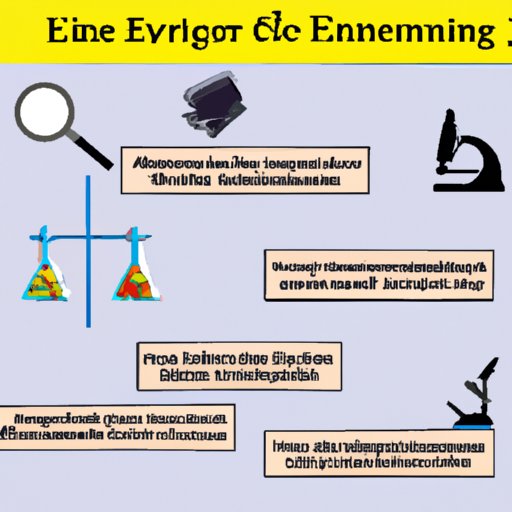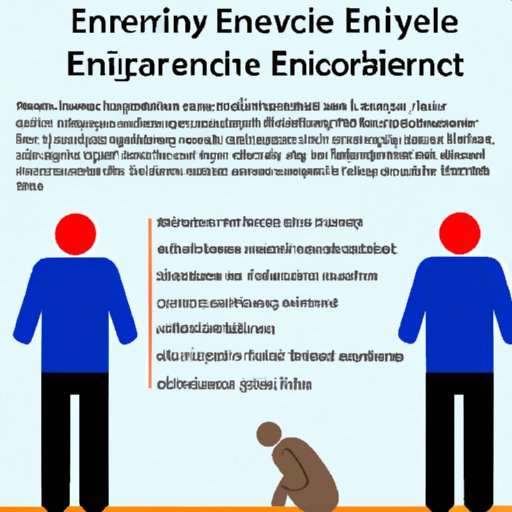Introduction
Empirical evidence is a crucial component of scientific research. It is the data collected and analyzed through observation and experimentation that allows us to refine our understanding of the world around us. But what exactly is empirical evidence, and how does it shape our understanding of the natural world? In this article, we will explore the basics of empirical evidence in science and its impact on scientific research.
The Basics of Empirical Evidence in Science
At its core, empirical evidence is simply information gathered through observation or experimentation. It is the data that researchers use to test hypotheses, draw conclusions, and make predictions about the world around us. As such, it is an essential part of the scientific process.
The Value of Empirical Evidence in Science
The value of empirical evidence lies in its ability to provide objective, verifiable information. Unlike anecdotal evidence, which can be subjective and unreliable, empirical evidence is based on data that can be verified by other scientists. This makes it an invaluable tool for scientists who are looking to test hypotheses and draw conclusions about the natural world.
Different Types of Empirical Evidence Used in Science
There are many different types of empirical evidence used in scientific research. These include quantitative data, such as measurements and statistics; qualitative data, such as interviews and case studies; observational data, such as field studies and surveys; and experimental data, such as controlled trials and laboratory experiments.

How to Gather and Analyze Empirical Evidence in Science
Once a researcher has identified the type of empirical evidence they need to test their hypothesis, they must then collect and analyze the data. This involves identifying sources of empirical evidence, collecting and organizing the data, and interpreting and analyzing the results.
Identifying Sources of Empirical Evidence
The first step in gathering empirical evidence is to identify potential sources of data. This could include existing datasets, such as those available from government agencies or research institutions, or original data gathered through observation or experimentation. Once the sources have been identified, the researcher can begin to collect the data.
Collecting and Organizing Data
Once the sources of data have been identified, the researcher can begin to collect and organize the data. This could involve collecting data through observation, interviewing subjects, or running experiments. The researcher must also ensure that the data is accurate and reliable, which may involve double-checking the data or running statistical tests.
Interpreting and Analyzing Results
Once the data has been collected and organized, the researcher can begin to interpret and analyze the results. This could involve running statistical tests to determine if the results are statistically significant, or using qualitative methods to draw conclusions from the data. The researcher must also ensure that their interpretations are valid and supported by the data.

Understanding the Impact of Empirical Evidence on Science
Empirical evidence is an essential component of scientific research, but it also has a wider impact on scientific understanding. By testing hypotheses and refining our understanding of the natural world, empirical evidence can help shape public opinion and further scientific progress.
The Importance of Replication
One of the most important aspects of empirical evidence is replication. In order to ensure that the results of a study are reliable and valid, it is essential that the findings can be replicated by other researchers. This helps to ensure that the results are not due to chance and can be relied upon for further research.
The Influence of Empirical Evidence on Public Opinion
Empirical evidence can also have a significant influence on public opinion. Research studies that show clear correlations between two variables can shape public understanding of topics such as health and nutrition, climate change, and other issues. As such, empirical evidence can play an important role in influencing public policy decisions.
Conclusion
In conclusion, empirical evidence is a cornerstone of scientific research. It provides the data that researchers need to test hypotheses, draw conclusions, and make predictions about the natural world. By understanding the basics of empirical evidence, scientists can ensure that their research is reliable and valid, and that their findings can be replicated by other researchers. Finally, empirical evidence can also have a profound influence on public opinion and policy decisions, making it an invaluable tool for furthering scientific progress.
Summary of the Main Points
This article explored the basics of empirical evidence in science, from what it means to how it is used in research. We discussed the value of empirical evidence in providing objective, verifiable information, as well as the various types of empirical evidence used in research. We also examined how to gather and analyze empirical evidence, and the impact it can have on public opinion and policy decisions.
Final Thoughts
Empirical evidence is an essential component of scientific research, and its importance cannot be overstated. By understanding the basics of empirical evidence, scientists can ensure that their research is reliable and valid, and that their findings can be used to further scientific progress.
(Note: Is this article not meeting your expectations? Do you have knowledge or insights to share? Unlock new opportunities and expand your reach by joining our authors team. Click Registration to join us and share your expertise with our readers.)
